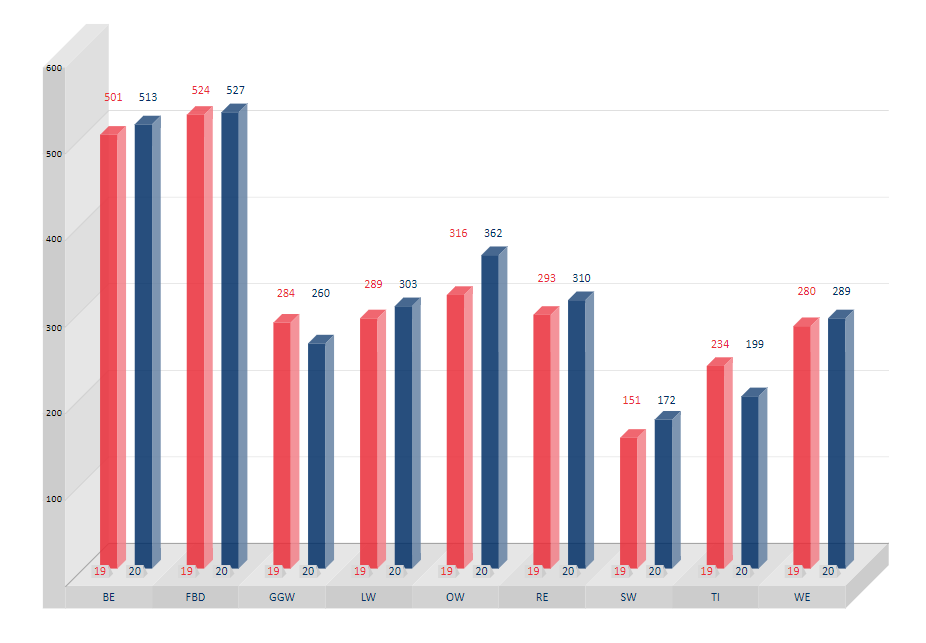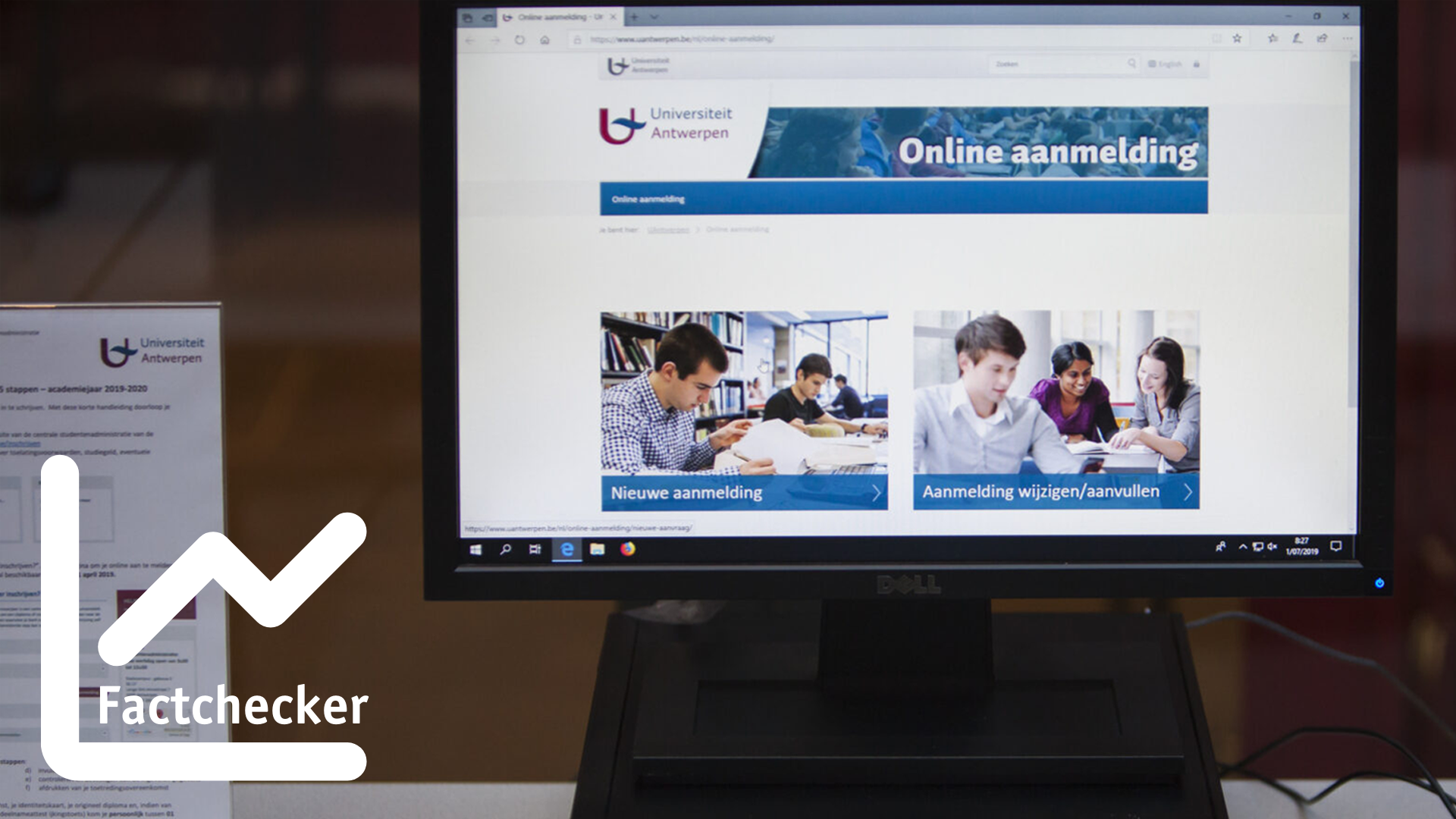Even in this unusual year, the number of new enrolments at our university has once again increased. By 10 October, 2935 students had enrolled at the University of Antwerp after their final year of secondary education. Last academic year there were 2872 – that’s an increase of about 2%.
Eric Mathieu, head of the Registrar’s Office, was initially cautious about the possible increase. But he also said it wasn’t too surprising, since why shouldn’t you start higher education in times of coronavirus?
It’s not always possible to say what leads to an increase or decrease in enrolments for certain programmes. Most faculties do have one or more programmes that seem to be especially popular among first-time students though.

Programmes which are attracting increasing numbers of first-time students:
- Bachelor in Business Engineering in Management Information Systems: +77%
- Bachelor in Social and Economic Sciences: +26%
- Bachelor in Biomedical Sciences: +27%
- Bachelor in Philosophy: +36%
- Bachelor in Architecture: +28%
- Bachelor in Conservation-Restoration: +48%
- Bachelor in Political Science: + 33%
- Bachelor in Sociology: +38%
- Bachelor in Computer Science: +38%
The number of new medical students also rose by 20%. But there were fewer new veterinary students (-14%), a trend that continues from last year and is partly down to the introduction of the ‘calibration test’ (ijkingstoets in Dutch).
Noticeable fallers:
- Bachelor in Applied Economics: Economic Policy: -28%
- Bachelor in Chemistry: -43%
- Bachelor in Mathematics: -28%
Fewer students opted for the Bachelor in Engineering Technology too (-15%). Yet the number of students enrolling in the Bachelor in Bioscience Engineering (Faculty of Science) rose by almost 10%.
Fewer Dutch students
Another striking observation: the number of first-time students from the Netherlands dropped from 270 to 248. Eric: ‘We got lots of calls from Dutch students asking if they’d still be able to cross the border easily during the coronavirus pandemic. Maybe the coronavirus can explain this particular drop.’ More than half of the new Dutch first-years have chosen to study in the Faculty of Pharmaceutical, Biomedical and Veterinary Sciences.
Online enrolment
Another thing that was different this year was the enrolment process. Because of the pandemic, we were forced to switch to ‘remote enrolment’ with lots of online elements. ‘We were already considering it before corona, but not actually working on it yet’, says Eric Mathieu. ‘Personal contact during enrolment has always been very important to the university. Suddenly it was precisely that face-to-face contact that we had to avoid.’
‘We quickly got to work with several departments, including ICT, to draw up a coronaproof, step-by-step plan based on the tools that already existed. But it was essentially a stopgap solution and we did run into some problems. Using digital signatures and eIDs was less straightforward than expected and some students struggled with the step-by-step plan. But we managed to help everyone, and the enrolment applications got processed quickly thanks to the efforts of all our staff. On average, it took two days to process applications that had been submitted correctly.’
‘The thing that slowed us down the most turned out to be bpost. Once an application had been processed, the student’s account details and a number of introductory documents had to be sent to them by post. Student workers and the university’s postal service always made sure that the parcels were ready to go the next day, or even the same day, but the actual delivery by bpost sometimes took longer than expected. That was especially annoying for students who had made the effort to enrol early in mid-September.’
Same peak period, just more intense
The number of registrations always peaked in September, but this year the peak was even more dramatic because the entrance exams for medicine and the calibration tests for veterinary medicine took place later. Staff were working on new applications constantly behind the scenes, regardless of the usual opening hours. They even worked on Saturdays to get everything finished.
Online again next year?
In response to the question of whether we’ll go online again for academic year 2021-2022, Eric says: ‘We’ll have to evaluate it together. We’ll definitely take our experiences from this summer into account in our plans to improve the enrolment process, but going 100% online is not easy. For some students, enrolling in person is important. That’s something we need to make sure can still happen in the future.’


